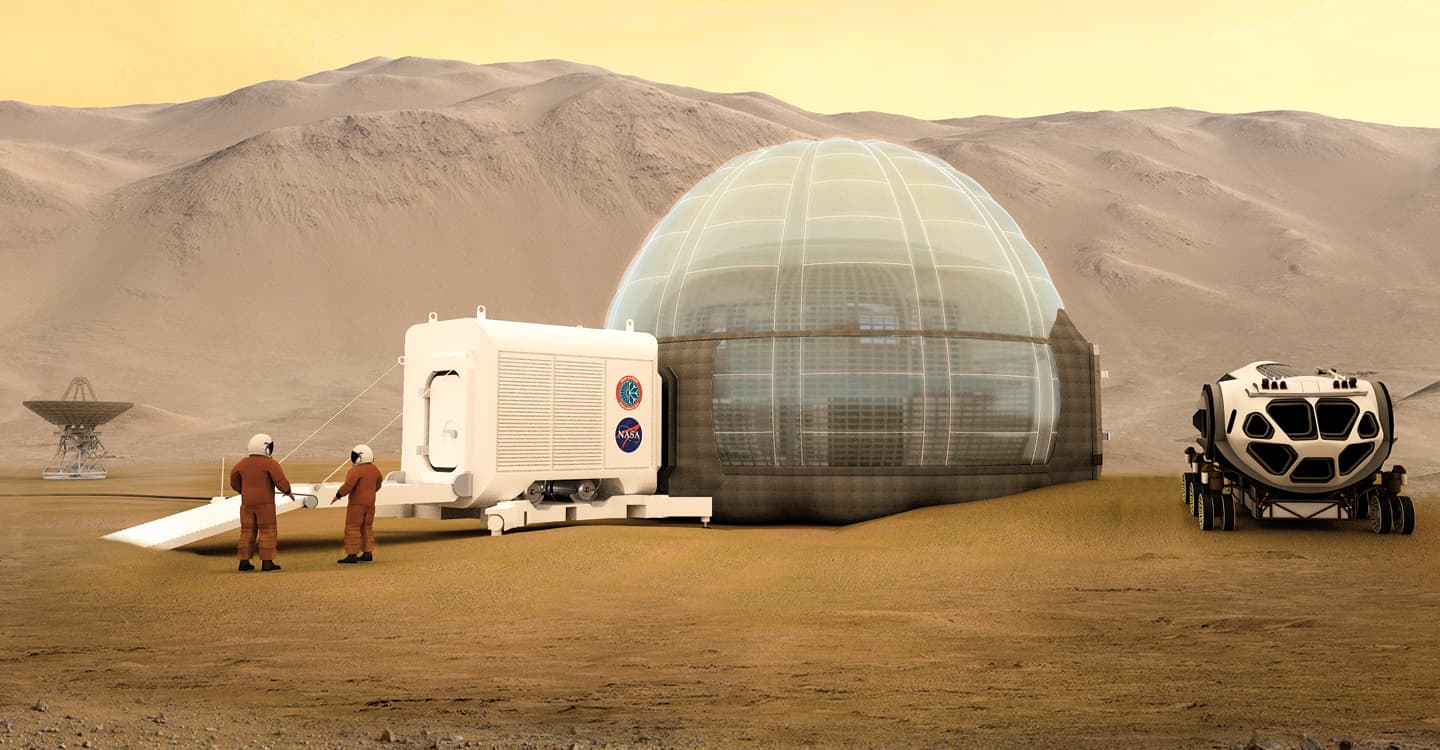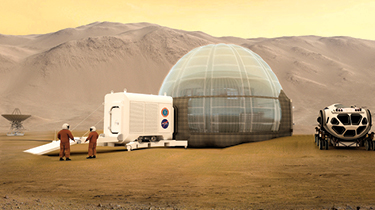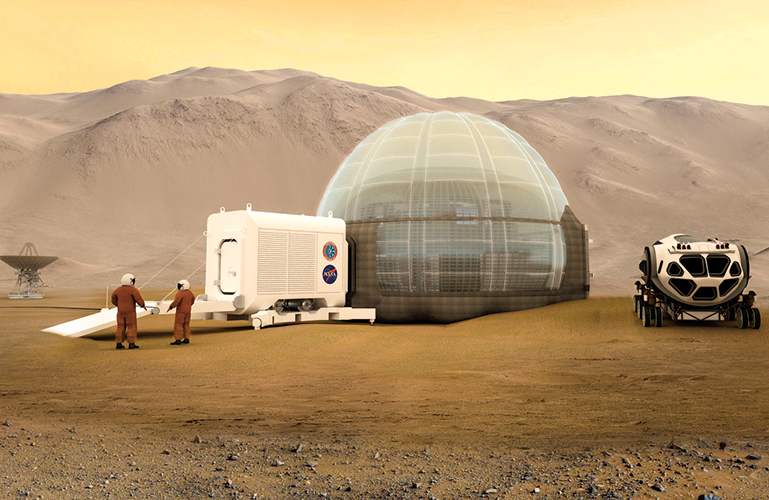NASA has been sending robots to study and collect information about Mars since 1965. The findings have inspired scientists to continue asking important questions, such as: Did life once exist on Mars? Does it exist there today? Could humans eventually live on Mars? What can the planet tell us about Earth’s past, present, and future?
Many scientists agree that only human explorers can answer these questions. Although robots have been extremely helpful in studying Mars—they discovered ice below the planet’s surface—people will be even better.
For one thing, humans will be able to make quicker decisions, without having to rely on commands from scientists on Earth, like robots do. What can take a rover days and weeks to analyze, a person can study in just hours. Humans will also be able to move around the planet much faster. The Curiosity rover, which is currently exploring Mars, can only travel about the length of a football field in one day.



